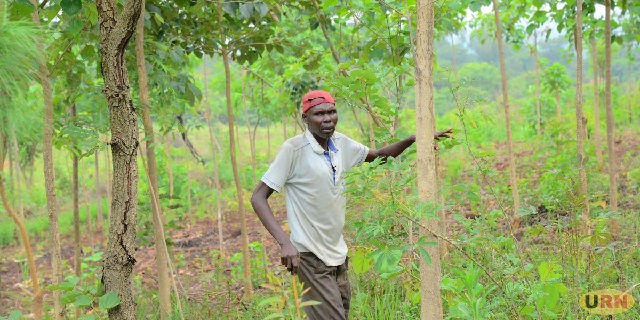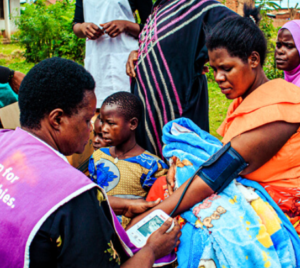Author: Bagombeka Job
Climate Change in Uganda
Uganda, like many other developing countries, is experiencing significant challenges due to climate change. The country’s economy heavily relies on agriculture, which is highly vulnerable to climatic fluctuations. Additionally, climate change impacts transport infrastructure and public health, exacerbating existing vulnerabilities. This article examines the effects of climate change on agriculture, transport, and health in Uganda and explores how ELOI Ministries Uganda is addressing these challenges.
The Impact on Agriculture
1. Unpredictable Weather Patterns
Climate change has led to erratic weather patterns in Uganda, characterized by irregular rainfall and prolonged dry spells. This unpredictability has severe consequences for agriculture, which is the backbone of Uganda’s economy.
- Crop Failures: Irregular rainfall disrupts planting and harvesting cycles, leading to crop failures and reduced yields. This threatens food security and the livelihoods of millions of smallholder farmers.
- Soil Degradation: Increased frequency of extreme weather events, such as heavy rains and floods, causes soil erosion and degradation. This reduces soil fertility and agricultural productivity.
2. Pest and Disease Outbreaks
Changing climatic conditions have also contributed to the proliferation of pests and diseases that affect crops and livestock. Warmer temperatures and altered precipitation patterns create favorable conditions for pests like locusts and diseases like maize lethal necrosis.
- Reduced Crop Yields: Pest and disease outbreaks lead to significant crop losses, further compromising food security.
- Livestock Health: Changes in climate also impact livestock health, with increased incidences of diseases such as tick-borne illnesses.
The Impact on Transport
1. Infrastructure Damage
Uganda’s transport infrastructure is vulnerable to the impacts of climate change. Heavy rains and floods often damage roads, bridges, and other transport infrastructure.
- Road Washouts: Flooding can wash out roads and bridges, disrupting transportation and isolating communities.
- Increased Maintenance Costs: The frequency of repairs and maintenance increases due to climate-induced damage, straining the country’s budget and resources.
2. Disruption of Supply Chains
Climate change-induced transport disruptions have a cascading effect on supply chains, affecting the movement of goods and services.
- Market Access: Farmers and businesses face difficulties accessing markets, leading to economic losses and food shortages.
- Increased Transportation Costs: Damaged infrastructure and disrupted supply chains result in higher transportation costs, affecting the affordability of goods and services.
The Impact on Health
1. Waterborne Diseases
Climate change exacerbates health challenges in Uganda, particularly through the spread of waterborne diseases. Flooding and poor water management increase the incidence of diseases such as cholera and typhoid.
- Increased Disease Outbreaks: Contaminated water sources during floods lead to higher incidences of waterborne diseases, straining the healthcare system.
- Health Infrastructure Strain: The healthcare system is often overwhelmed during disease outbreaks, with limited resources to manage increased patient loads.
2. Malnutrition
Agricultural disruptions due to climate change contribute to food insecurity and malnutrition, particularly among vulnerable populations such as children and the elderly.
- Reduced Food Availability: Crop failures and reduced yields limit food availability, leading to malnutrition and associated health problems.
- Poor Nutritional Quality: Changes in crop patterns and reduced diversity in available foods affect the nutritional quality of diets.
ELOI Ministries Uganda’s Efforts to Combat Climate Change
ELOI Ministries Uganda is actively working to address the multifaceted challenges posed by climate change. Their efforts encompass a range of initiatives aimed at mitigating the impact of climate change and building resilience within communities.
1. Sustainable Agriculture Practices
ELOI Ministries Uganda promotes sustainable agriculture practices to help farmers adapt to changing climatic conditions and improve food security.
- Climate-Resilient Crops: The organization encourages the cultivation of climate-resilient crops that can withstand erratic weather patterns and pests.
- Agroforestry: ELOI Ministries Uganda advocates for agroforestry practices, integrating trees into farming systems to improve soil fertility, reduce erosion, and enhance biodiversity.
- Water Conservation: Training programs on water conservation techniques, such as rainwater harvesting and efficient irrigation methods, help farmers manage water resources more effectively.
2. Infrastructure and Transport Solutions
To address the impact of climate change on transport, ELOI Ministries Uganda supports initiatives aimed at improving infrastructure resilience.
- Community Infrastructure Projects: The organization collaborates with local communities to develop and maintain resilient infrastructure, such as elevated roads and bridges that can withstand flooding.
- Advocacy for Investment: ELOI Ministries Uganda advocates for increased government and international investment in resilient transport infrastructure to ensure sustainable development.
3. Health Interventions
ELOI Ministries Uganda implements health interventions to mitigate the impact of climate change on public health.
- Water and Sanitation Programs: The organization works to improve access to clean water and sanitation facilities, reducing the risk of waterborne diseases. This includes the construction of wells, boreholes, and sanitation facilities in vulnerable communities.
- Healthcare Access and Education: ELOI Ministries Uganda provides healthcare services and education on disease prevention and nutrition. This includes mobile health clinics, vaccination campaigns, and nutritional support programs.
4. Community Education and Empowerment
A critical aspect of ELOI Ministries Uganda’s approach is community education and empowerment. By raising awareness and building local capacity, the organization fosters resilience and adaptive capacity.
- Climate Change Awareness: ELOI Ministries Uganda conducts awareness campaigns and educational programs to inform communities about the causes and impacts of climate change and the importance of adaptation and mitigation measures.
- Empowerment Programs: The organization offers training and resources to empower individuals and communities to take proactive measures in addressing climate change. This includes leadership development, capacity-building workshops, and support for local initiatives.
Conclusion
Climate change poses significant challenges to agriculture, transport, and public health in Uganda, affecting the livelihoods and well-being of millions. ELOI Ministries Uganda is making a substantial impact by promoting sustainable agriculture, supporting resilient infrastructure, implementing health interventions, and empowering communities. Their comprehensive approach addresses the immediate and long-term needs of vulnerable populations, helping them adapt to the changing climate and build a sustainable future. Through continued dedication and collaboration, ELOI Ministries Uganda is paving the way for a more resilient and equitable Uganda, where communities can thrive despite the challenges posed by climate change.
Author:: Bagombeka Job

























































